Abstract
1. Breast milk composition was followed for a period of 28 days in five women during lactational amenorrhea and in another two who were taking oral contraceptives. The milk composition was also studied in two women during an anovulatory menstrual cycle and in six women during an ovulatory menstrual cycle. Samples of milk were collected from each breast at each feed for each day of the study. 2. Two acute changes, the first 5-6 days before and the second 6-7 days after ovulation, occurred in the milk composition during the ovulatory menstrual cycle. At both times there was an increase in Na and Cl concentrations from (mean +/- S.E. of mean) 4.6 +/- 0.2 mM and 11.1 +/- 0.2 mM to 10.1 +/- 0.9 mM and 22.0 +/- 0.9 mM respectively and a decrease in lactose and K concentrations from 7.8 +/- 0.2 g/100 ml. and 13.6 +/- 0.4 mM to 6.0 +/- 0.2 g/100 ml. and 10.2 +/- 0.5 mM respectively. The mean duration of the first change was 28 hr and the second was 32 hr. The concentrations of lactose, Cl, K and Na remained relatively constant during lactational amenorrhea, anovulatory menstrual cycles and for those women taking oral contraceptives. 3. These observations indicate that an increase in the permeability of the mammary epithelium was elicited by changes related to ovulation. It is suggested that the first acute change in the breast milk composition may be associated with the final stages of follicle maturation and the second with the regression of the corpus luteum during the ovulatory menstrual cycle.
Full text
PDF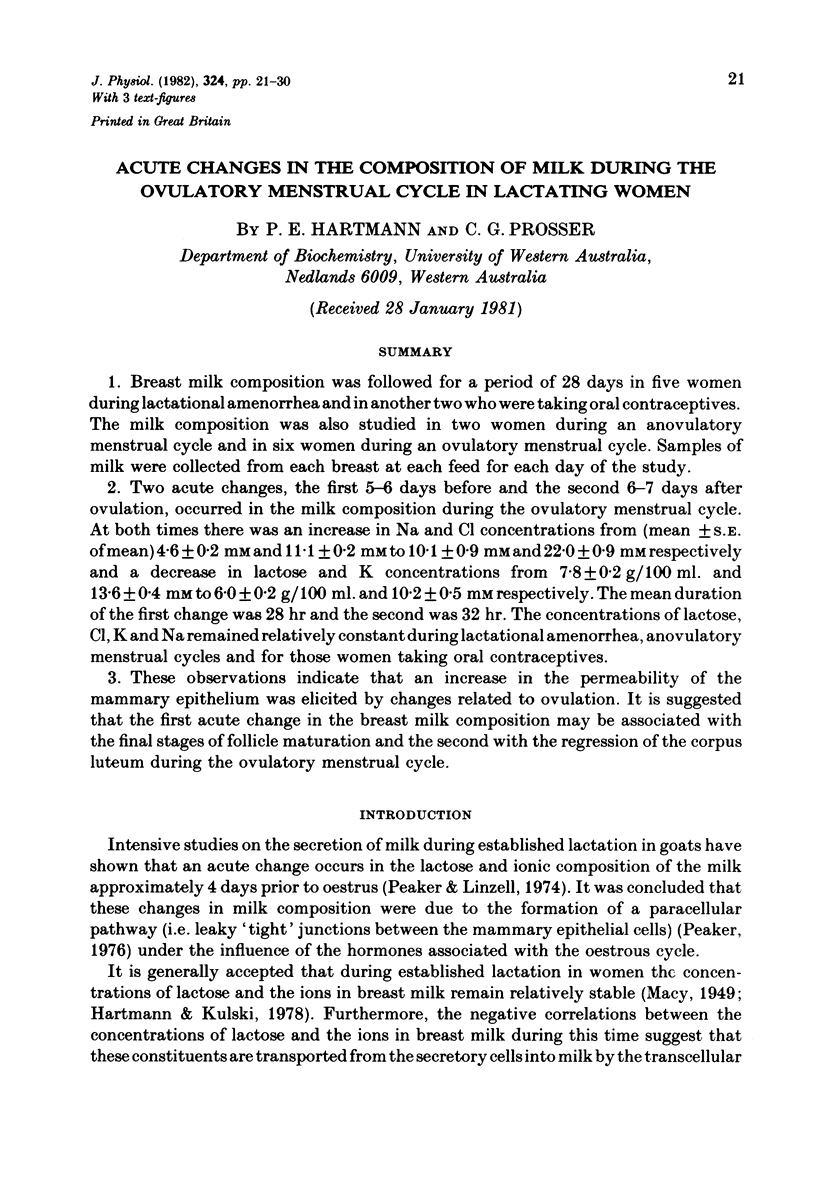
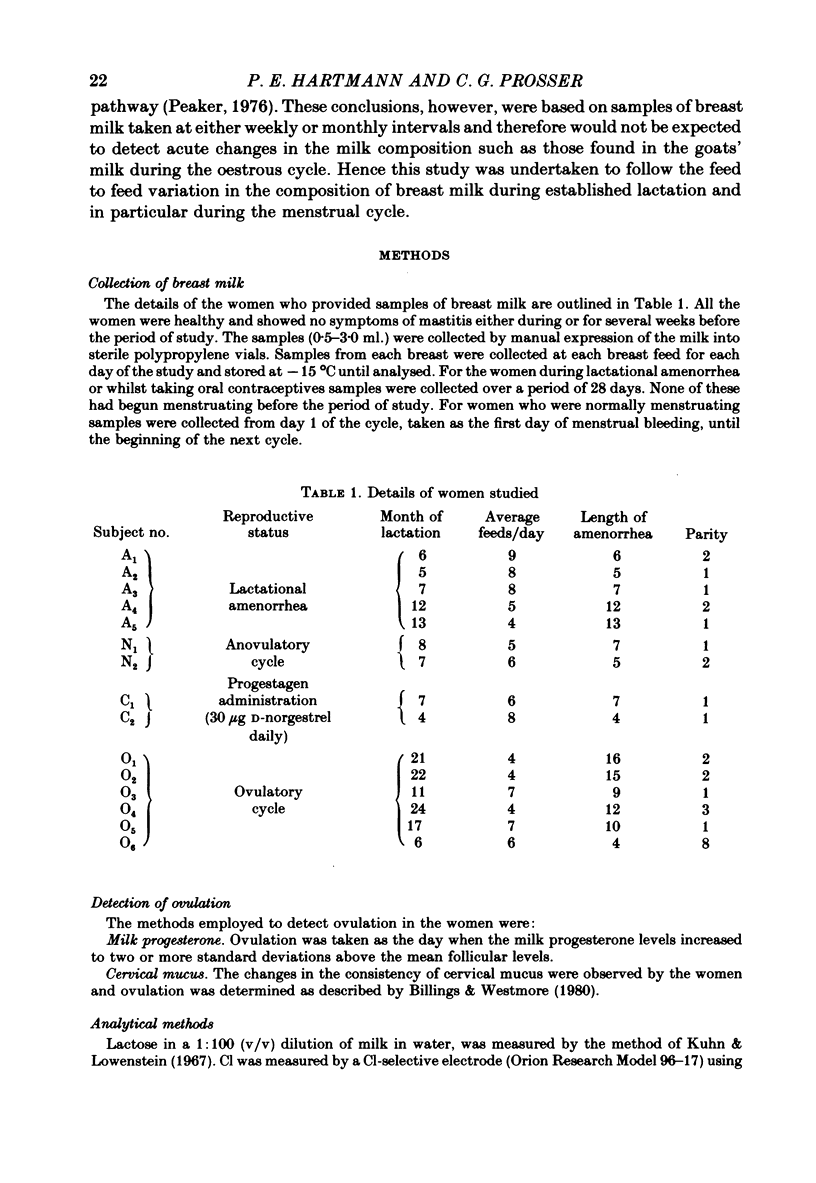
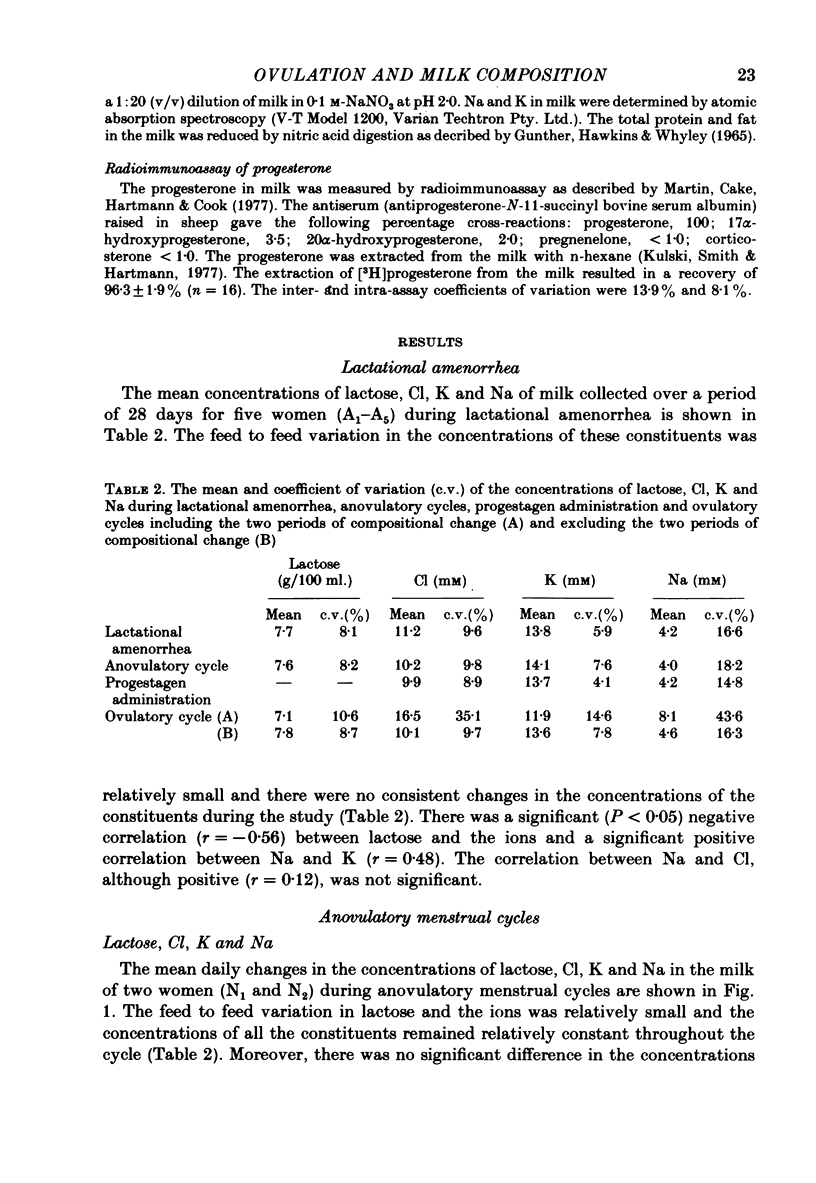
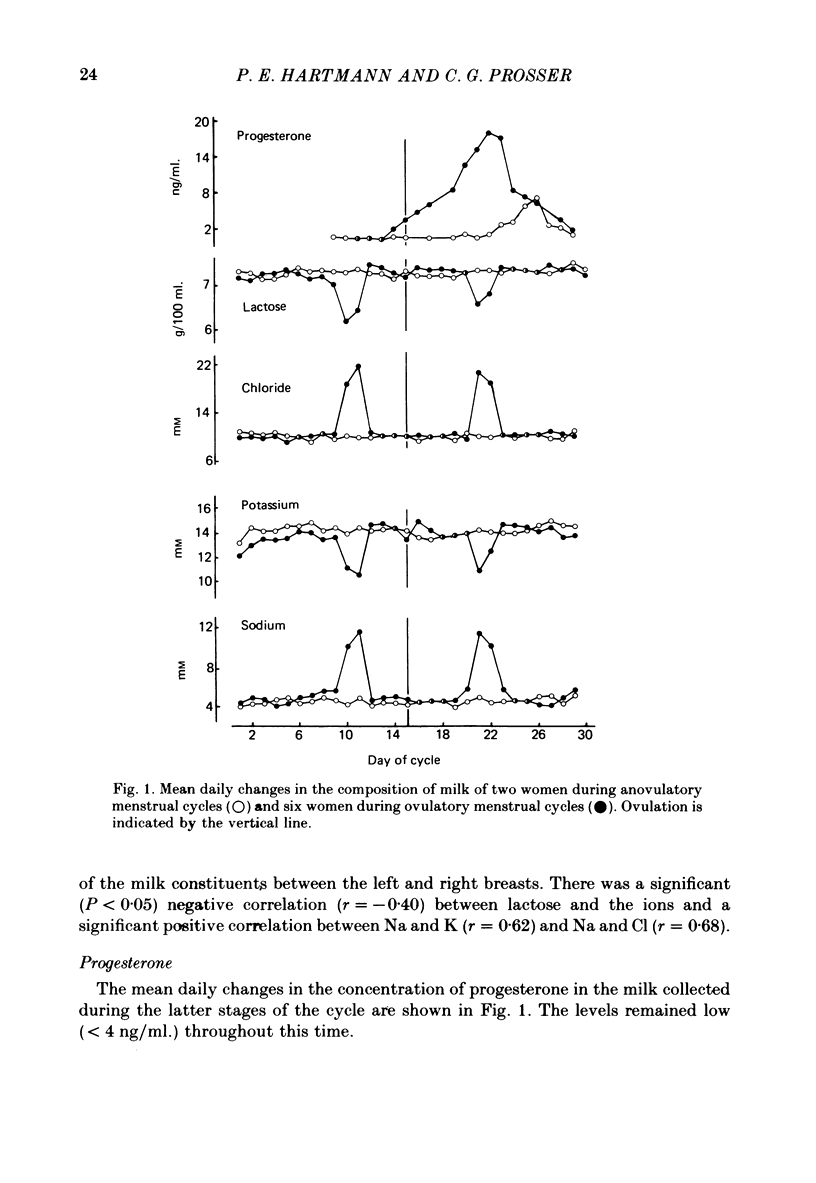
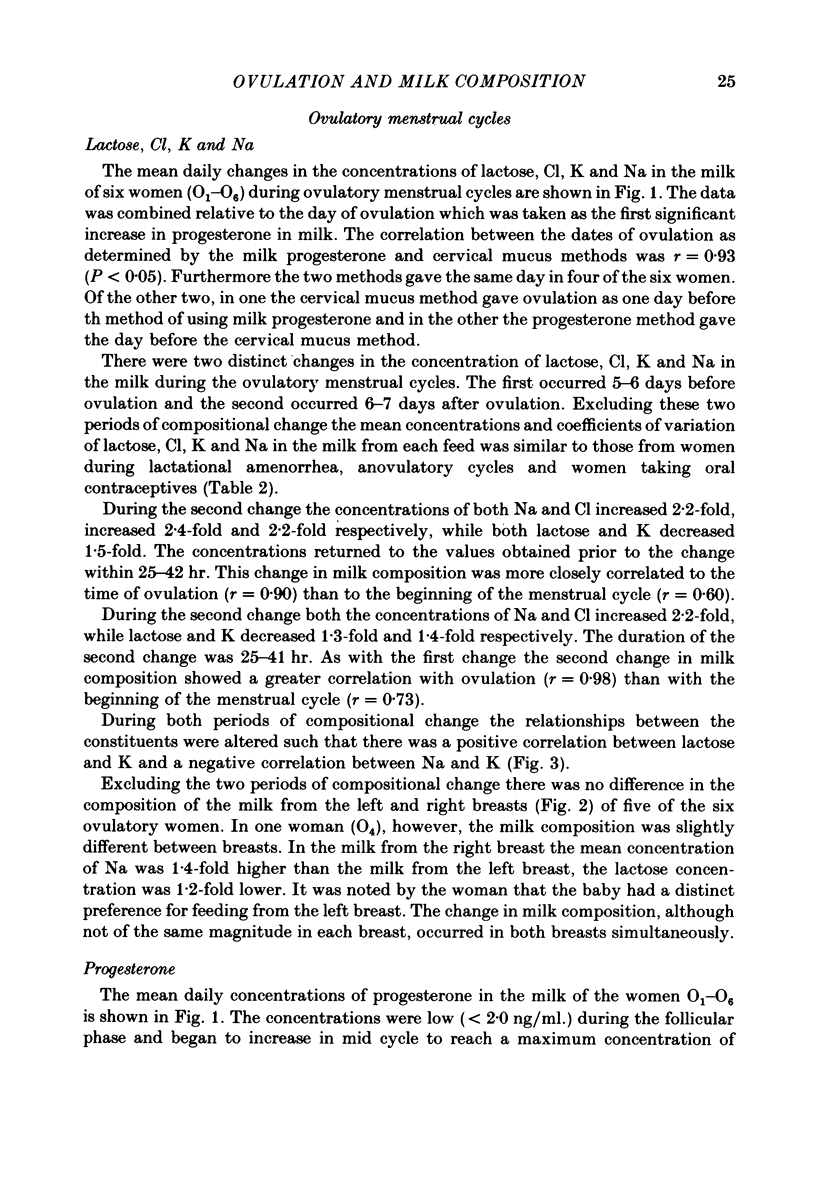
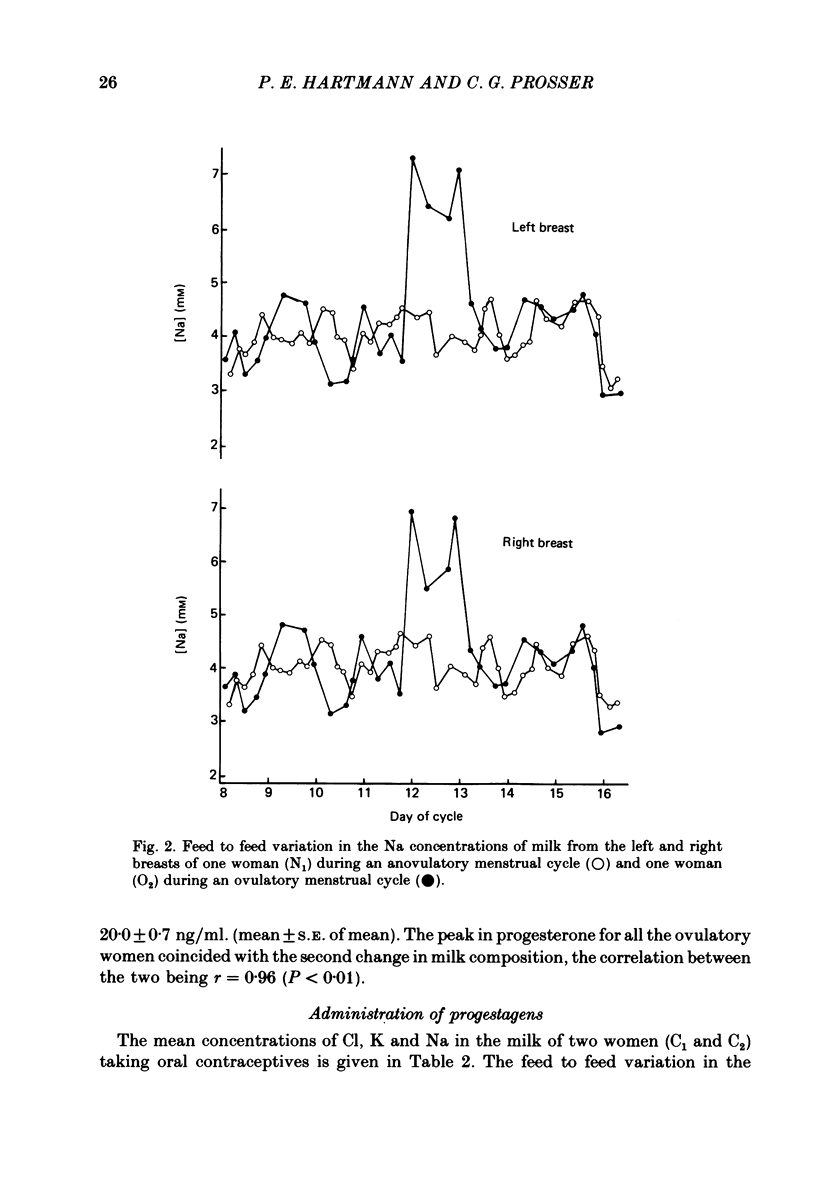
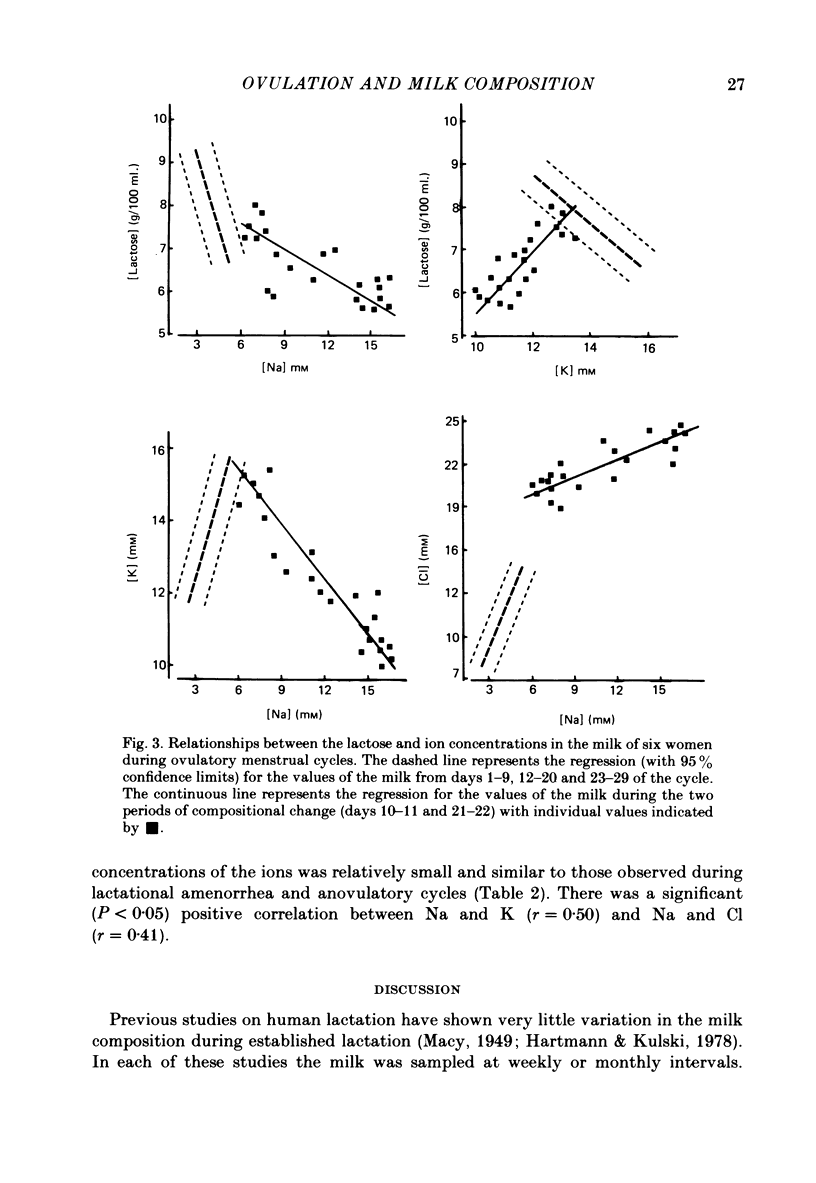
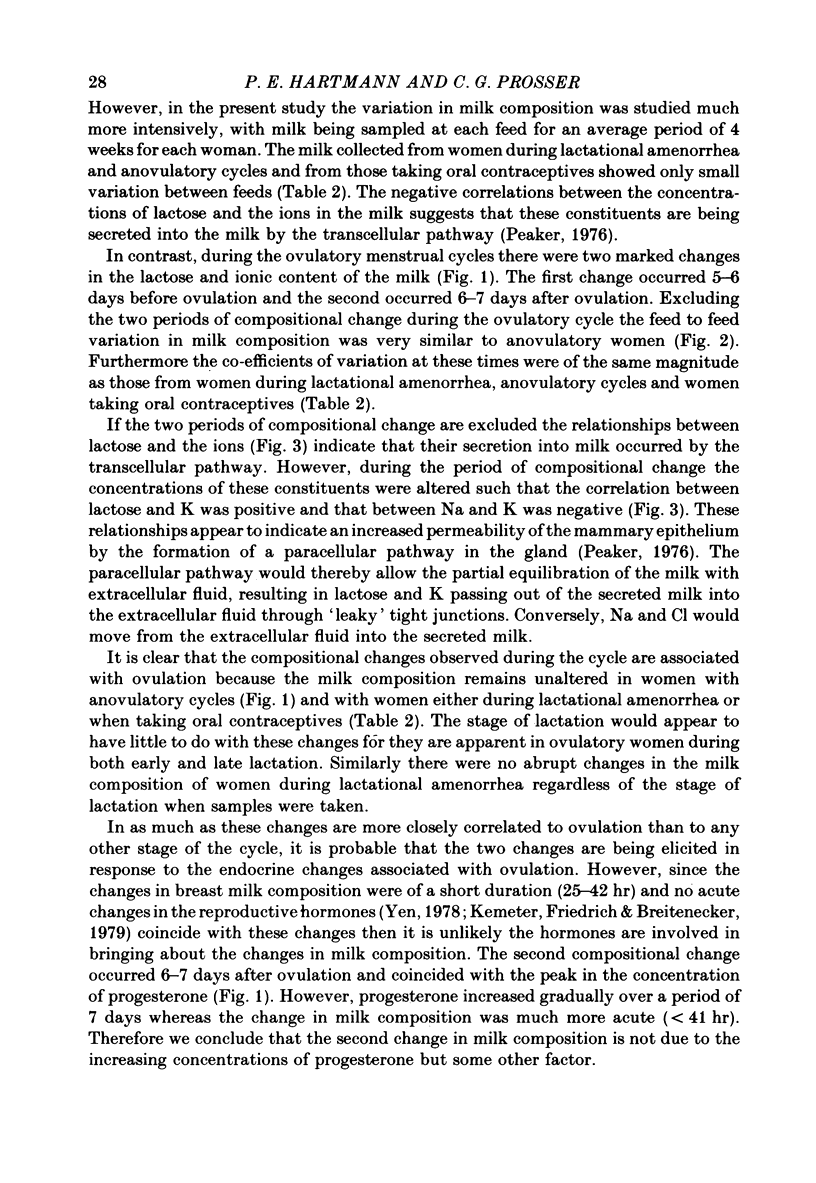
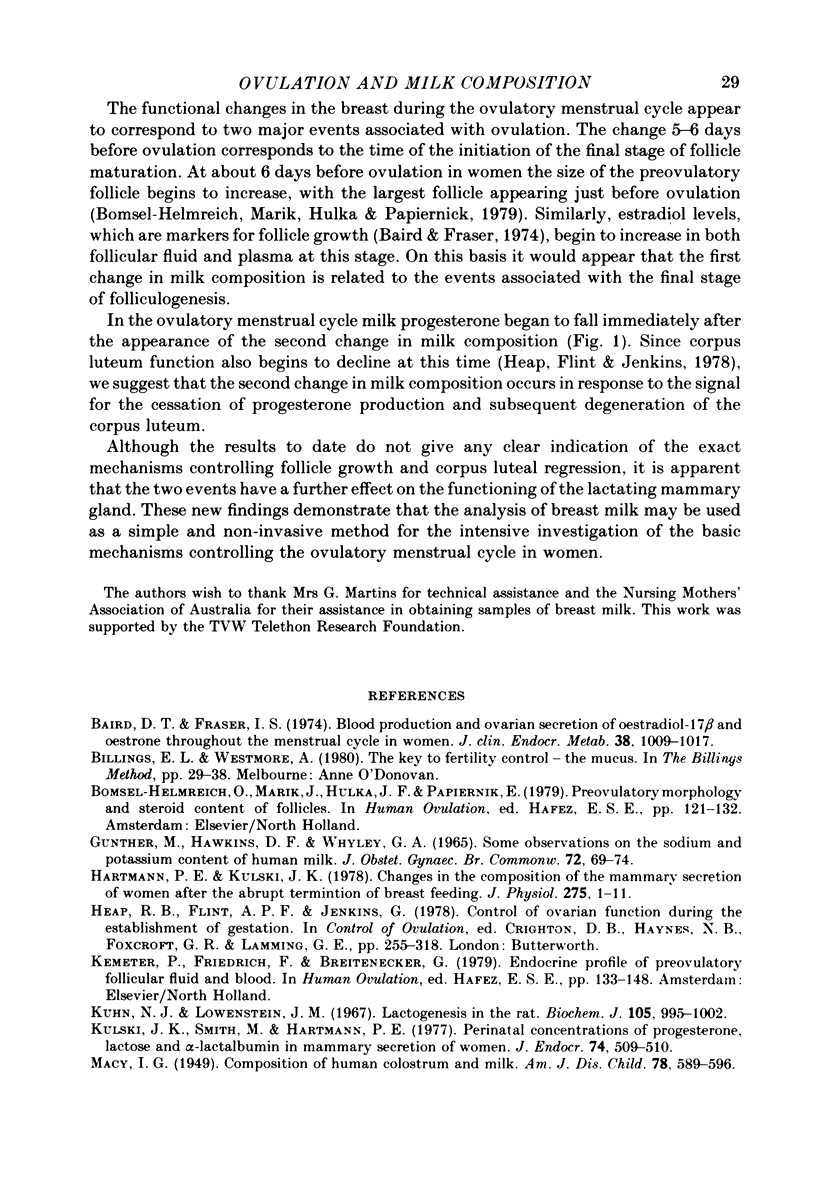
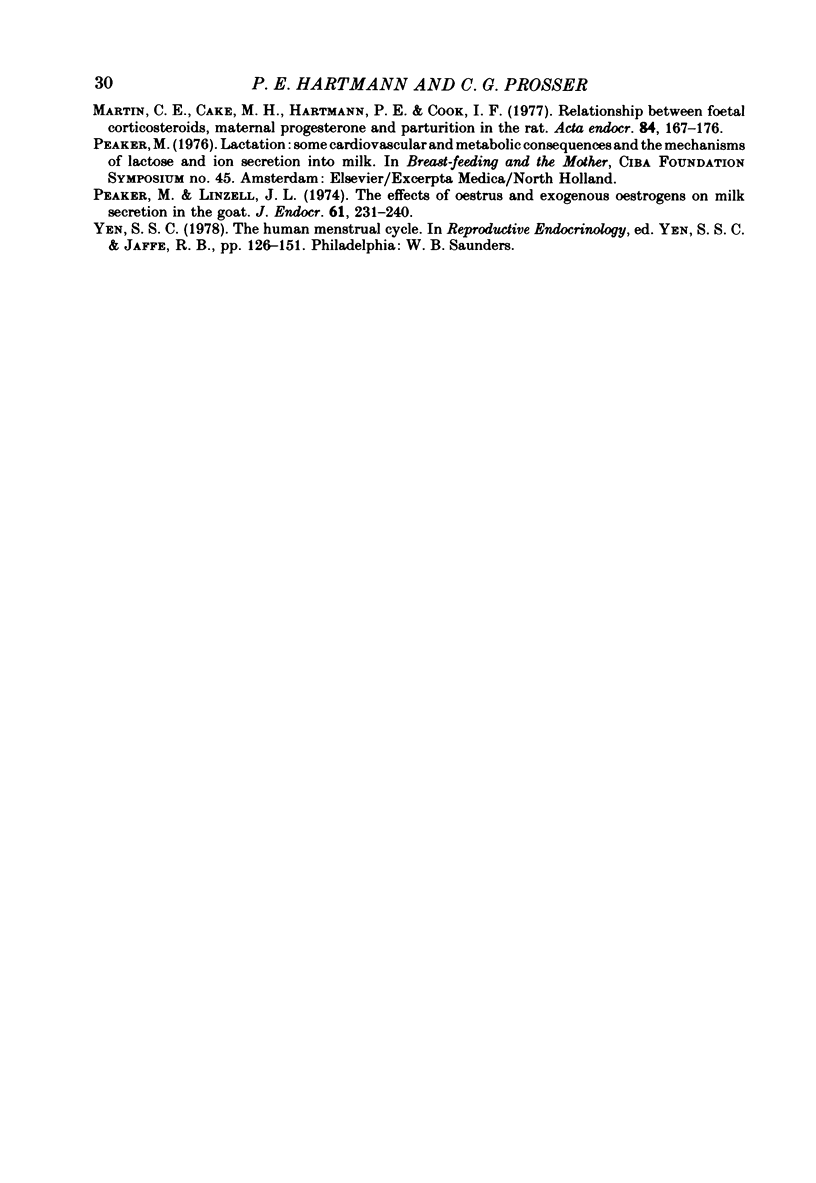
Selected References
These references are in PubMed. This may not be the complete list of references from this article.
- Baird D. T., Fraser I. S. Blood production and ovarian secretion rates of estradiol-17 beta and estrone in women throughout the menstrual cycle. J Clin Endocrinol Metab. 1974 Jun;38(6):1009–1017. doi: 10.1210/jcem-38-6-1009. [DOI] [PubMed] [Google Scholar]
- GUNTHER M., HAWKINS D. F., WHYLEY G. A. SOME OBSERVATIONS ON THE SODIUM AND POTASSIUM CONTENT OF HUMAN MILK. J Obstet Gynaecol Br Commonw. 1965 Feb;72:69–74. doi: 10.1111/j.1471-0528.1965.tb01375.x. [DOI] [PubMed] [Google Scholar]
- Hartmann P. E., Kulski J. K. Changes in the composition of the mammary secretion of women after abrupt termination of breast feeding. J Physiol. 1978 Feb;275:1–11. doi: 10.1113/jphysiol.1978.sp012173. [DOI] [PMC free article] [PubMed] [Google Scholar]
- Kuhn N. J., Lowenstein J. M. Lactogenesis in the rat. Changes in metabolic parameters at parturition. Biochem J. 1967 Dec;105(3):995–1002. doi: 10.1042/bj1050995. [DOI] [PMC free article] [PubMed] [Google Scholar]
- Kulski J. K., Smith M., Hartmann P. E. Perinatal concentrations of progesterone, lactose and alpha-lactalbumin in the mammary secretion of women. J Endocrinol. 1977 Sep;74(3):509–510. doi: 10.1677/joe.0.0740509. [DOI] [PubMed] [Google Scholar]
- Martin C. E., Cake M. H., Hartmann P. E., Cook I. F. Relationship between foetal corticosteroids, maternal progesterone and parturition in the rat. Acta Endocrinol (Copenh) 1977 Jan;84(1):167–176. doi: 10.1530/acta.0.0840167. [DOI] [PubMed] [Google Scholar]
- Peaker M., Linzell J. L. The effects of oestrus and exogenous oestrogens on milk secretion in the goat. J Endocrinol. 1974 May;61(2):231–240. doi: 10.1677/joe.0.0610231. [DOI] [PubMed] [Google Scholar]


